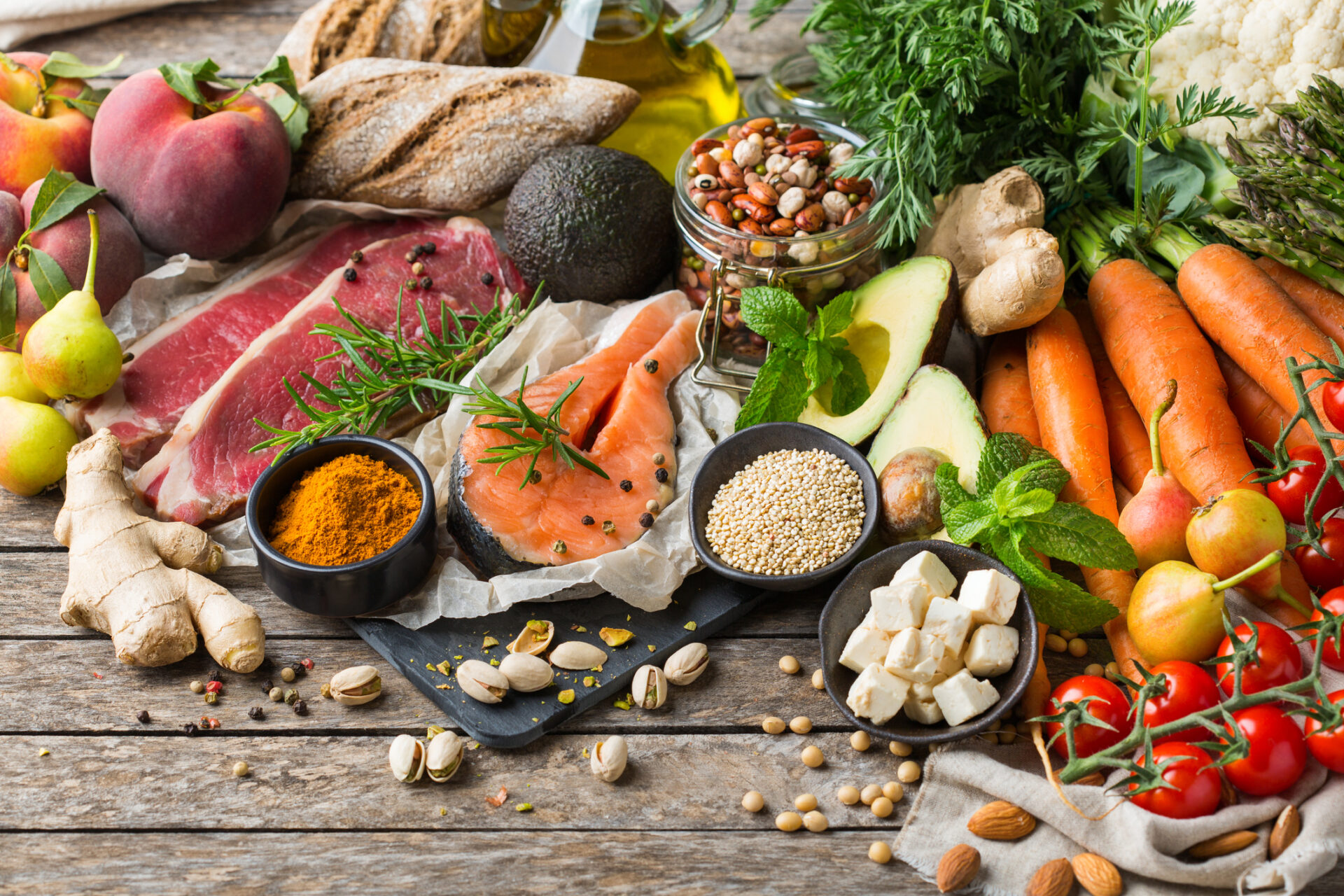Nutrition is a vital aspect of living with COPD. While a healthy diet can’t cure COPD, nutritious food can keep you feeling well and help you to avoid sickness and infections by helping to improve your immune system. A healthy, well-balanced diet and adequate nutrition will provide your body with the energy, vitamins and nutrition required to keep you as well as possible when living with a lung condition such as COPD.
“Breathing requires more energy for people living with COPD,” said Lung Foundation Australia Respiratory Care Nurse Amanda Curran.
“Your muscles may require 10 times more calories than someone without COPD,” said Amanda.
“There are studies which indicate people living with a chronic lung condition use up to 25-50% more energy than people with normal lung function. This is from the added work that you must use for breathing, fighting chest infections and trying to avoid nasty flare-ups. All of these are more common in people living with COPD. This adds to the importance of eating well with COPD.”
Follow these healthy tips as a guide for living with COPD.
Maintain a healthy weight
If you are living with COPD it is recommended to maintain a moderate weight. Speak to your doctor or healthcare professional to determine a healthy weight for you.
“COPD can affect your weight in two different ways, through shortness of breath and decreased energy levels,” said Amanda.
“Make a habit of weighing yourself at the same time once a week, with your clothes off. Or if this isn’t possible, wear the same clothes each weigh-in. It’s important to work with your GP or healthcare provider to determine your goal weight,” she said.
- If you are overweight – This can increase shortness of breath, which makes it difficult for your lungs and other organs to work well
- If you are underweight – Your immune system may not be able to fight infections and limits your energy.
Focus on protein rich foods
Foods rich in protein help your muscles to stay strong and assist with your breathing. Eating the right foods will help to boost your energy levels. Foods containing protein help fuel your body and carry oxygen through your body in your blood. It also helps to create antibodies that can fight infections.
Foods high in protein include meat, poultry, eggs, fish, legumes, nuts, seeds, tofu and grains like wheat or corn.
If you are looking to lose weight, be mindful of portion sizes. Your health professional or nutritionist can assist with this.

Fruit and vegetables
Fresh or cooked fruit and vegetables are great sources of vitamins and nutrients. They also contain natural antioxidants which help with healing and prevent inflammation.
Try to include in your diet:
- Two pieces of fruit each day
- Vegetables or salad at lunch and/or dinner
- A variety of colours on your plate, to ensure a wide range of nutrients.
Say cheese! Calcium and vitamin D to keep your bones healthy
We all need help getting the vitamins and minerals that our bodies can’t produce on their own. For those living with COPD, calcium and vitamin D are particularly important. Some medications prescribed for COPD can make your bones brittle, and calcium helps to protect your bones.
If you are on a reduced-calorie diet, look for skim or reduced-fat options for calcium.
Foods containing high amounts of calcium are:
- Dairy such as yoghurt, milk, and cheese
- Tinned fish, like sardines
- Nuts, including almonds
- Green, leafy vegetables.
“To receive adequate vitamin D, getting outside into the sunlight is the best way. Low vitamin D levels can increase your severity of infection. So, if you spend a lot of time inside, talk to your doctor about the possibility of having your vitamin D levels checked with a blood test. If your levels are low your doctor will tell you how much you need and the best way to get it,” says Amanda.
Stay hydrated
Ensure you drink plenty of fluids. This will help keep the mucus in your airways thin and make it easier to cough up.
“We suggest you drink roughly eight glasses of non-caffeinated fluid each day, or water. Some people with COPD also have heart problems and might need to limit their fluids, so it is important to discuss this with your doctor,” says Amanda.
All fluids count towards your daily fluid intake, however it’s best if most comes from plain water. Milk, tea or coffee can be included but these should be consumed in moderation.
Dry mouth syndrome
You may find you experience a dry mouth. This is caused by various medications such as oxygen treatment and inhalers. As a result, food can be less appealing, and your taste may be altered.
To manage a dry mouth:
Choose softer and moist foods (casseroles or stews)
Add sauce to your food
Suck on ice
Chew sugar-free gum
Sip on a lemon drink.
Choose foods which are rich in taste and add herbs and spices to your food to increase their flavour. Discuss with your pharmacist the available products to treat dry mouth syndrome. You should see your doctor if the dryness of your mouth starts to bother you.
Additional helpful information
For COPD diet and nutrition discuss with your doctor the possibility of a referral to a dietitian. You can also discuss the available options of clinical nutritional supplements or compact liquid nutritional supplements and ways you can fortify your current dietary intake.
Staying mindful of your overall health while living with COPD is important. Nutrition plays a big role in that. Planning healthy meals and snacks and choosing a variety of foods from each of the five food groups is a great place to start.
Find a dietitian with a special interest in chronic lung conditions, talk to your GP or specialist or visit www.dietitiansaustralia.org.au

